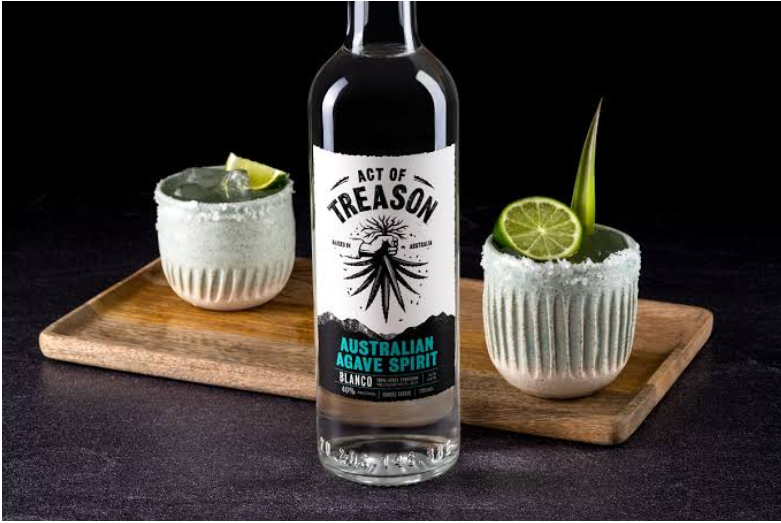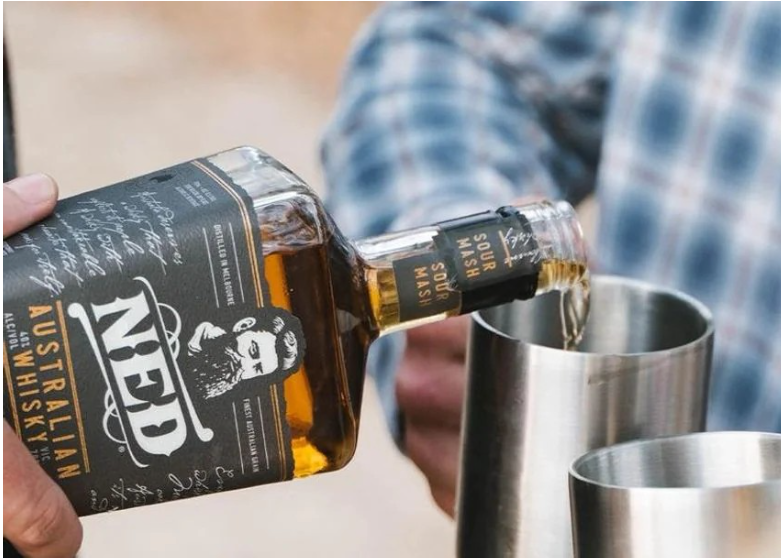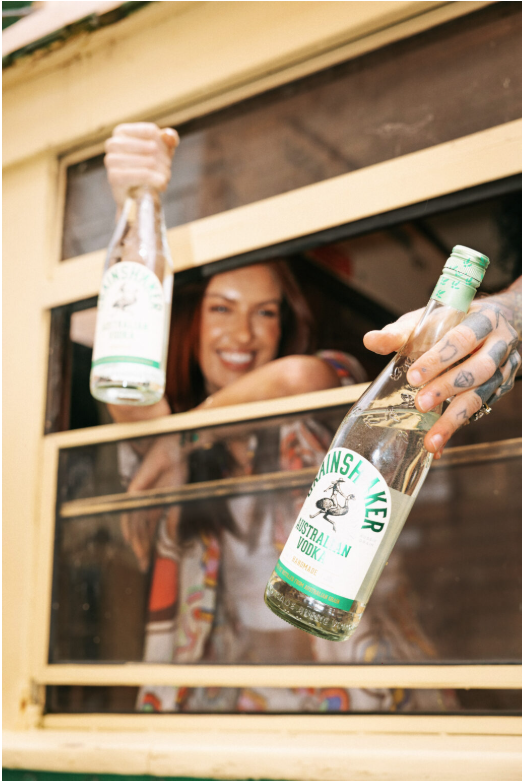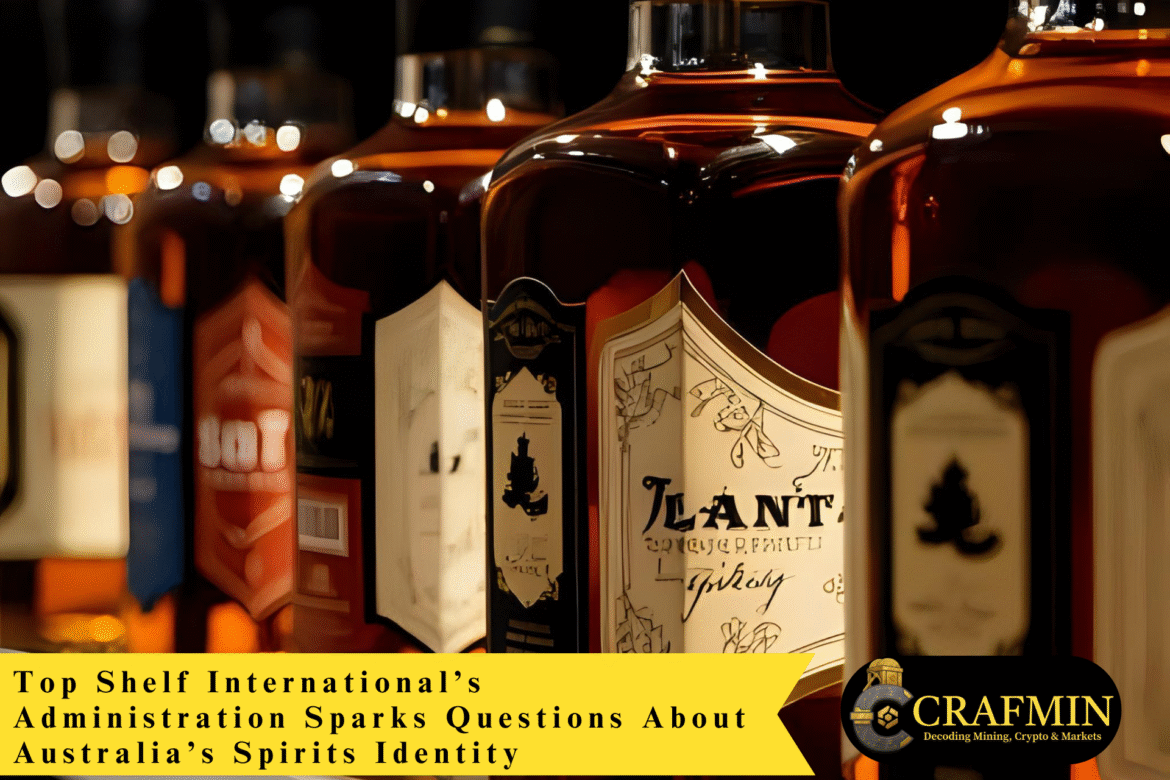A Turn of Drama for a Brightening Star
 Source: AFR
Source: AFR
Australia’s liquor industry has forever been the tale of the underdogs doing more than their just desserts. Few have done it as well as Top Shelf International, the manufacturer of NED Australian Whisky, Grainshaker Vodka, and the thrill-seeking Act of Treason agave spirit.
The business is now under voluntary administration, with McGrathNicol taking control to steady the ship and consider the fate of the company.
The news came as a shock to many who have followed the career of TSI. Here was a brand producing award-winning spirits, gaining traction internationally, and waving the flag for “Australian-made” on the world stage. On paper, it had it all. In real life, the figures told another story.
When Prestige Meets Pressure
 Source: Photo: NED Whisky, via Facebook
Source: Photo: NED Whisky, via Facebook
Top Shelf products have been collecting awards. Grainshaker Vodka recently earned a place on the top-of-the-world list. NED Whisky was the favorite of pubs and collectors, providing a domestic alternative to the US and Scottish behemoths. Even the Act of Treason agave spirit—a risky foray into making tequila-style spirits in Australia—was popular for being a first.
But plaudits and adoration cannot hide the grubby realities of production expenses, tax obligations, and agitated shareholders. TSI offloaded its Campbellfield factory last year to pay millions of ATO debts and repositioned at the top trying to calm the waters. Such efforts prevented skulduggery but not candour.
Today, the question is not whether the beverages are terrific—such as they are—but whether a small Australian distiller, ambitious, can make it in an industry that requires size, money, and merciless cost-cutting.
Communities and Consumers in the Middle
 Source: Australian Life Magazine
Source: Australian Life Magazine
Behind the news are individuals. Distillers who took years crafting one-off recipes. Farmers that provided grain for whisky and vodka. Retailers and pubs that fought for locally made bottles on shelves. Consumers who traded imported names for something that held a uniquely Australian tale.
The voluntary administration breaks up these networks. Will there be further production? Will the jobs be safe? Can supply catch up with demand if investors hesitate? The answers will determine not only the future of TSI, but the integrity of the wider Australian spirits industry.
The Amber Bev Factor
One such lifeline is discussions of partnership with Amber Bev, a significant international distributor. If that agreement proceeds, it might assist in accessing distribution and brand visibility as administrators weigh recapitalisation or sale. For consumers, that means the bottles everyone enjoys might continue to pour onto store shelves.
Also Read: US Treasury Explores Digital Identity in DeFi to Combat Illicit Finance in 2025
For investors, though, time is running out. Shares in TSI are still suspended and the market waits in suspense to learn if administrators can plot a credible rescue.
It’s More Than a Balance Sheet
The larger picture here is not so much about any one company—it’s about what Australia wants its spirits industry to be. Wine saturated the country’s dialogue around premium beverages for decades. Spirits have never been more than an afterthought, second to imports.
Top Shelf was not afraid to shatter that script. It wagered on local grain, local manufacturing, and a local brand. It wagered it in categories—such as agave—that others weren’t trying at this magnitude. By doing so, it said to the world that Australia can make spirits with character, not clones.
That fantasy hasn’t disappeared, even if the bottom line has creaked.
Lessons in Resilience
Going into administration casts a critical light on ambition versus stamina. Awards and reputation can place a distillery center stage, but long-term success is built upon robust cash flow, streamlined operations, and collaborations that share the sting of distribution.
For entrepreneurs eyeing the industry, TSI’s struggles highlight both opportunity and caution: the appetite for Australian-made spirits is real, but the market is unforgiving if scale doesn’t match ambition.
Snapshot: Where TSI Finds Itself
| Key Element | Status |
| Administration | Voluntary, effective immediately under McGrathNicol |
| Asset Redeployment | Campbellfield facility sold, ATO debt cleared |
| Leadership | CEO departing; Chairman acting as interim executive |
| Brand Strength | High global acclaim for Grainshaker, NED, Act of Treason |
| Next Moves | Exploring recapitalisation, sale, or partnership with Amber Bev |
What’s Next
McGrathNicol managers will send it out next to determine whether Top Shelf can be recapitalized, sold as a going concern, or dissected. In the interim, production goes on. NED, Grainshaker and Act of Treason bottles remain on retail shelves. Consumers drinking it today may not even be aware of the storm in the bottle.
That consistency is important. It provides space for administrators to plan a future for the brands without sacrificing the integrity of what’s been built.
Why This Story Matters
This is not merely a story of corporate restructuring. It’s an experiment of whether Australia’s aspiration to be known everywhere in the world for spirits—as it is for wine—is strong enough to withstand marketplace exigencies.
If Top Shelf makes it through, it would be a new day of determination and prove that Australian spirits are resilient enough to survive hardships. If it doesn’t, it threatens to send the wrong message that even iconic, award-winning brands can’t survive the competition from overseas and economic pressure.
Either way, the story of Top Shelf International reminds us that every bottle is backed by a community of creators, a marketplace of believers, and a national identity in the making.

